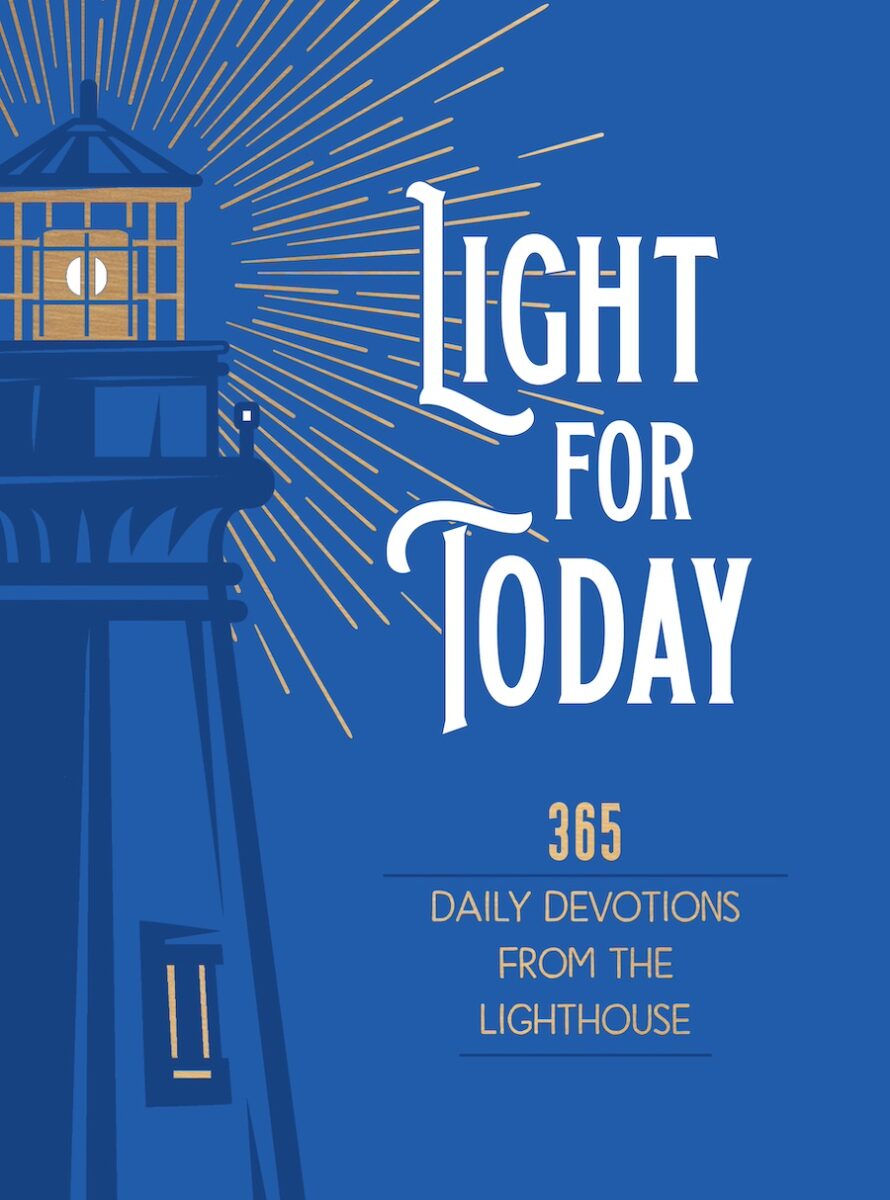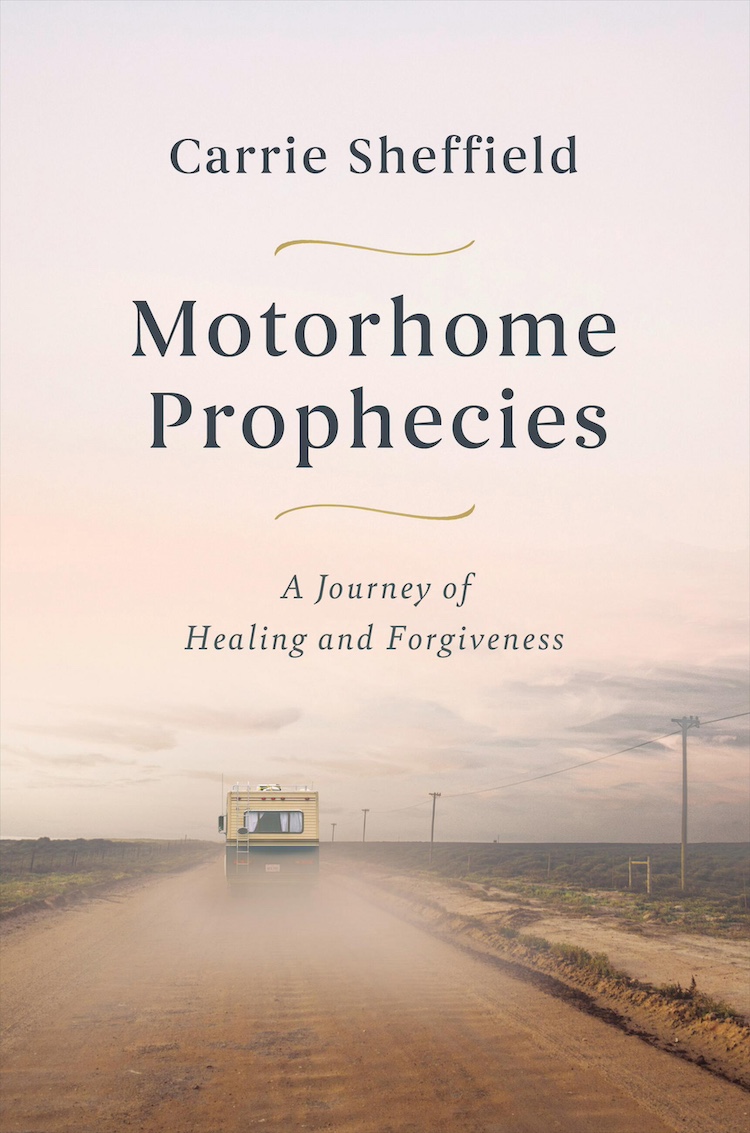Through Prayer Comes Healing: Lauren Green and Carrie Sheffield
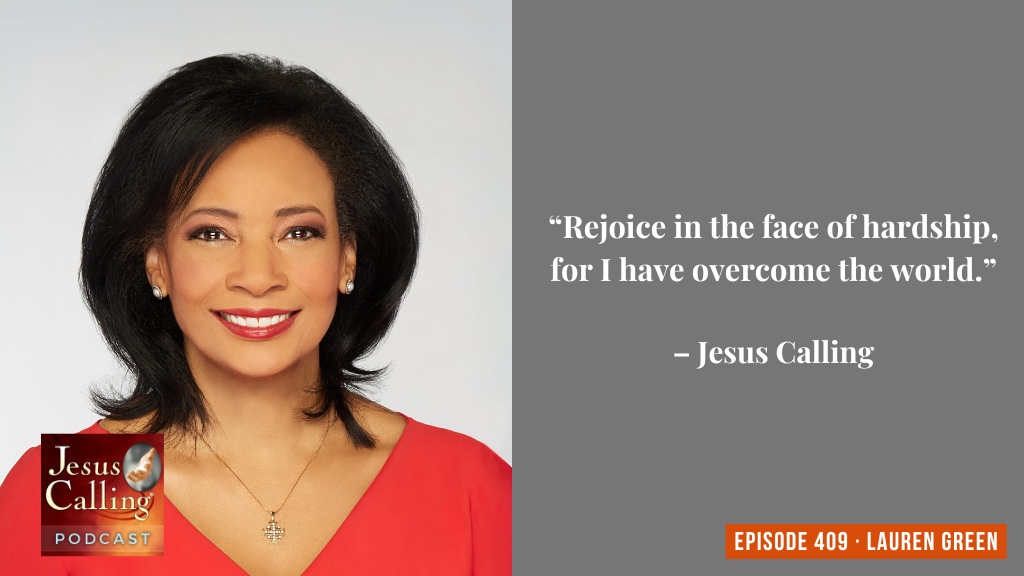
*Content Warning: This episode mentions suicide and depression and may not be suitable for all listeners.*
Lauren Green: I don’t have to figure certain things out because I know the God of the Bible is really the one who’s doing battle for me.
Through Prayer Comes Healing: Lauren Green and Carrie Sheffield – Episode #409
Narrator: Welcome to the Jesus Calling Podcast. We all carry scars, both visible and invisible, that life’s challenges leave behind. Far from permanently marring us, our scars can become sites of incredible healing and strength when we open ourselves to faith. This faith doesn’t erase the pain or revert the past, but transforms our relationship with our scars. It encourages us to see them not as symbols of hurt, but as markers of healing and resilience: vibrant signs of what we’ve overcome through faith.
Lauren Green is a seasoned journalist and the chief religion correspondent for Fox News Channel. Exploring the intricate intersection of religion and journalism, Lauren found herself reporting on stories ranging from everyday news to the profound mysteries of faith that shaped her perspective on communication and human connection. Later in the episode, we’ll hear from Carrie Sheffield, whose troubled, nomadic childhood eventually gave way to a season of academic success and achievements, where her agnostic beliefs were challenged by a quest for deeper meaning.
Let’s begin with Lauren’s story.
Lauren Green: My name is Lauren Green, and officially, I’m the chief religion correspondent for Fox News Channel.
I grew up in Minneapolis, Minnesota. I’m the youngest of five children. There was always a piano in our house, so even when I was a young kid, three or four years old, I was banging on the piano. So the music was always part of me, and I remember even before I started taking piano lessons, I would hear certain musical sounds and be captivated by it, just captivated by the sound of it.
Interpreting the World Through Music & Words
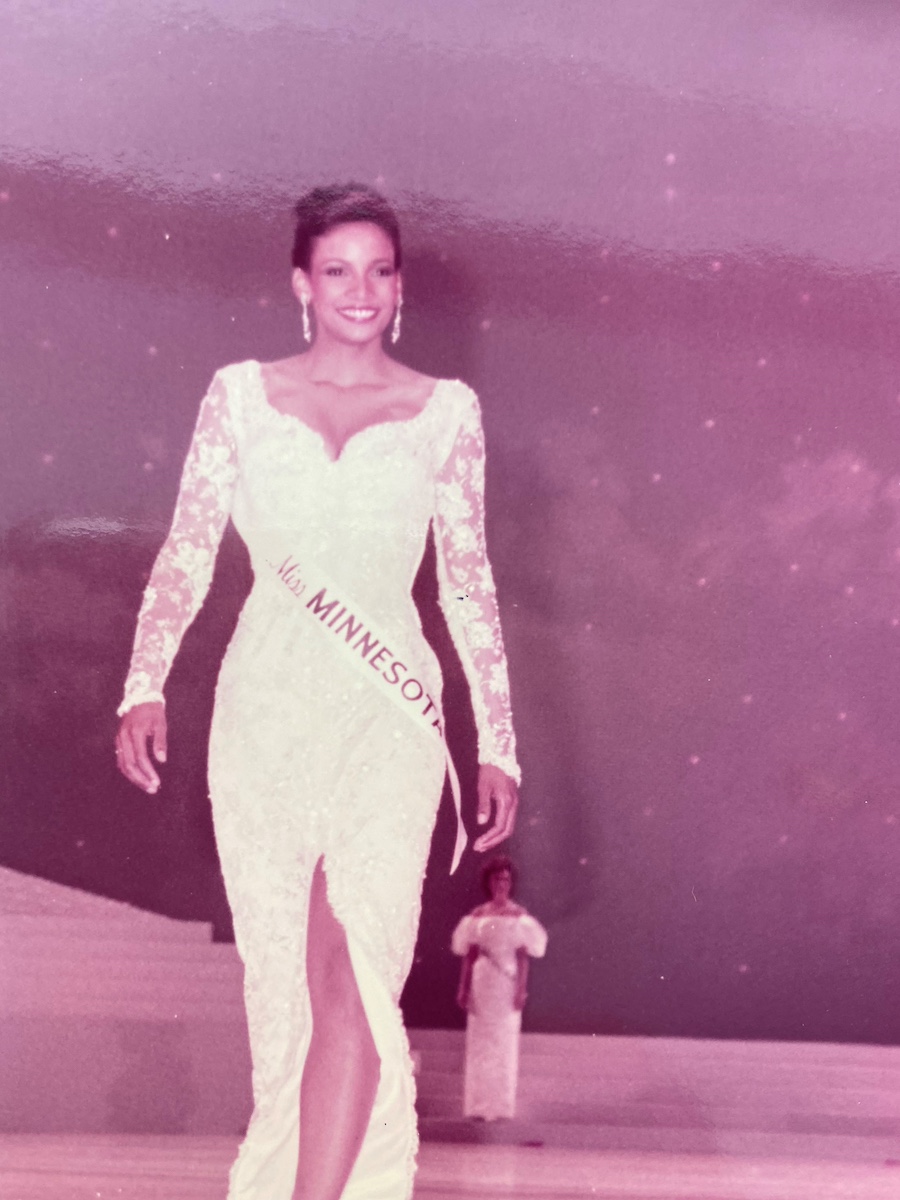
Journalism was something that I sort of fell into. I was in the Miss America Pageant and I was a music major, and had a degree in piano performance. It was after the Miss America pageant that I got an internship at a TV station in Minneapolis, and I realized I had no background in journalism. So from that six month internship, I went to graduate school at Northwestern, in the Medill School of Journalism, and I got a masters in journalism, and that’s really where it started.
Before I was in the Miss America Pageant, I actually did some commercial work and some voiceover work and modeling work, so I was used to being in front of people. I think the thing that really concerned me was being able to write well, because I had an understanding of how I wanted a story to flow. Journalism is very interesting because for me, my communication skills had really developed very, very highly in music. I understood sort of the emotional life of a person through music. And when I became a journalist, it was as if I was trying to translate from one language to another. I was trying to find words to communicate something that I only felt in music. And I think that has been the challenge in journalism my entire life, to find the exact words and exact phrasing that would say what I knew that the music could say in a different way. The challenge now is to find words that could kind of get close to interpreting and expressing the same thoughts, same feelings.
“When I became a journalist, it was as if I was trying to translate from one language to another. I was trying to find words to communicate something that I only felt in music.” – Lauren Green
Bringing Religion into Journalism
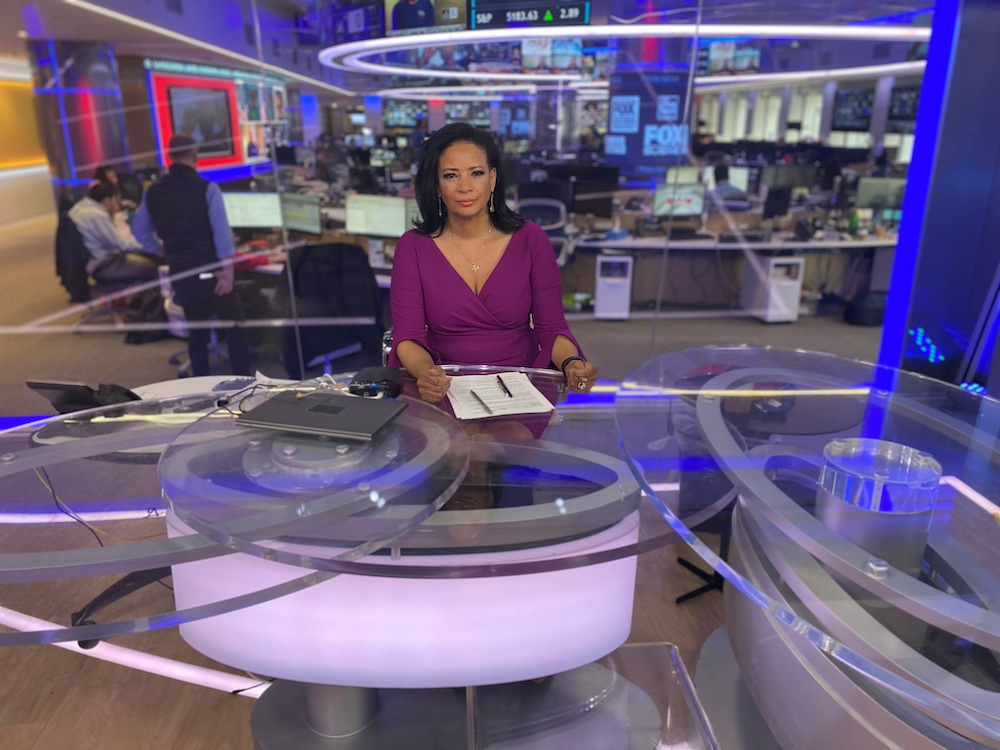
As a reporter, I do regular news stories that have no religious content to them. But I’m also able to do stories that cover the Pope and cover various other religious aspects. That is one of the challenges for living in a very secular world, is understanding and seeing God in the everyday.
“That is one of the challenges for living in a very secular world, is understanding and seeing God in the everyday.” – Lauren Green
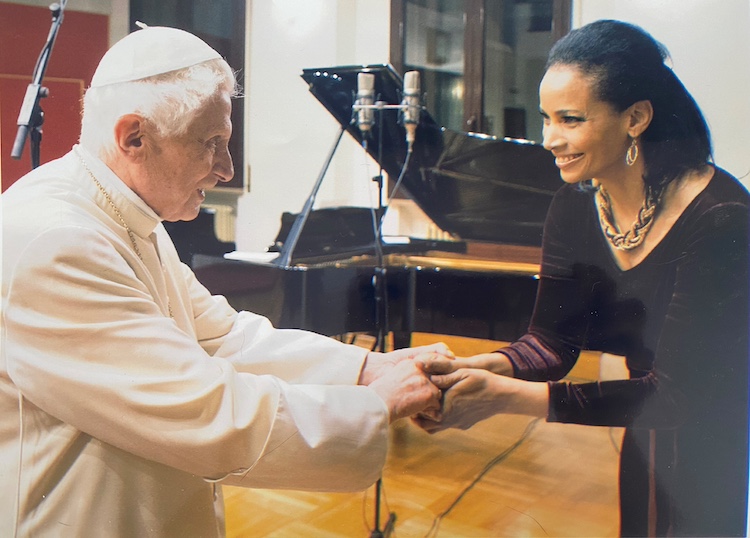
I grew up in the AME church. I was baptized in a Baptist church when I was in my twenties, and I was married in the Greek Orthodox Church. And one of my dearest, dearest friends is a very devout Catholic woman who is a member of Opus Dei. So I really do have a very, very, very, very broad understanding of Christianity from its various denominations. And I think that all contributes to understanding the body of Christ.
Everyone is made in God’s image. So first and foremost, whoever they are, whatever they’ve done, you have to see them first as someone made in God’s image. And so with that in mind, when you talk about being objective in a story, I don’t think any journalist is truly objective in that sense. If there’s a grand narrative of creation, everyone has a stake in what they believe and how they live it out. So with that in mind, you have to be respectful of a human being. How do you do that if you don’t agree with what they believe? The best you can do is present this person’s story in the way that their heart and their mind needs it presented. I think that’s the best a journalist can do.
“Everyone is made in God’s image. So first and foremost, whoever they are, whatever they’ve done, you have to see them first as someone made in God’s image.” – Lauren Green
Discern God’s Will by Turning to the Word
I think prayer is so important, and yet it’s the one thing sometimes we all forget to do when we get busy. And I’ve known that when I have gotten frustrated or upset about things, I really have to stop and think, Have I prayed?
Every day is a day that we can draw closer to Jesus or draw further away, and this is why the Jesus Calling book has really meant a lot to me, because I know that I’ve quoted some of the entries from Jesus Calling because it’s been such a great impact on my life. And one of the things I really like about it is that it’s very practical. At the end of every entry are two or three scriptures. And those scriptures, I go in and I look them up and I read them. And because of that, I have more understanding of how the Bible is formed. You cannot know God’s will for your life unless you read His words.
“You cannot know God’s will for your life unless you read His words.” – Lauren Green
Jesus Listens, January 28th:
Compassionate Jesus,
Though Your continual presence is guaranteed, simply knowing this truth doesn’t automatically change my emotions. When I forget to focus on You, I’m vulnerable to fear, anxiety, loneliness, and other unwanted feelings. Yet I’ve found that awareness of Your presence with me can dispel those painful feelings and replace them with Your peace.
Please train me in the discipline of walking attentively with You through each day.
In Your calming name,
Amen
Narrator: To learn more about Lauren, follow her on social media, and be sure to check out her new book, Light For Today, available at your favorite retailer.
Stay tuned to Carrie Sheffield’s story after a brief message.
Set Your Graduates Up For Success
During times of transition and unknown next steps, it is more important than ever to cling to the promises of God and to tune your ear to hear what Jesus has to say. Jesus Calling for Graduates is an encouraging compilation of 150 devotions from Sarah Young’s brand. Grads will find topics such as discerning God’s will, self-worth, trust, support, and much more. Jesus Calling for Graduates is perfect for both high school and college graduates as they embark on the next chapter. Look for a special custom edition of Jesus Calling for Graduates available exclusively at www.faithgateway.com.
Our next guest is journalist Carrie Sheffield, who overcame a traumatic and abusive childhood as the daughter of a religious radical. Carrie struggled with anxiety, depression, and suicidal ideation, labeling herself as an agnostic because religion had scarred her so deeply. As she pursued an education at Harvard, Carrie discovered some new truths about God that showed He was not the one responsible for her scars, but He would be the One to eventually heal her soul.
Carrie Sheffield: My name is Carrie Sheffield. I’m an author, a journalist, and a policy analyst. I live in the D.C. area.
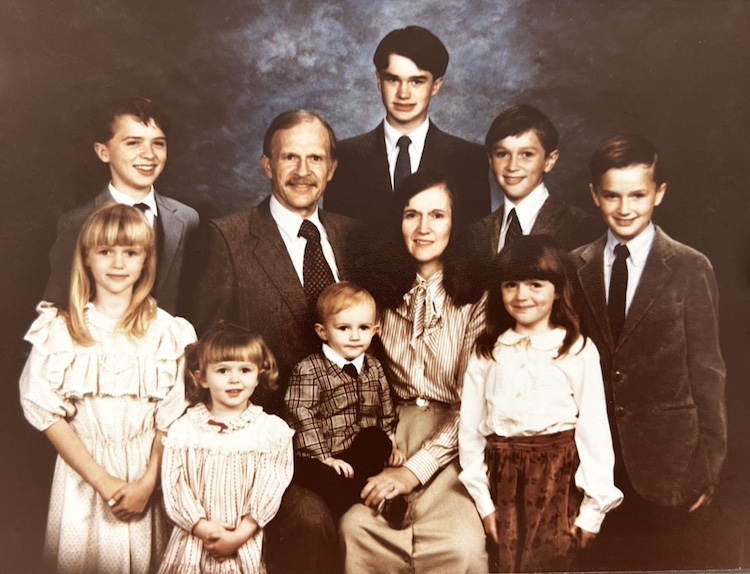
It’s funny sometimes when people ask me, “Where are you from?” I say, “I’m from America,” because it’s a complicated question. Growing up, I went to seventeen public schools and was homeschooled. I spent large portions of my childhood living in a motorhome with my seven biological siblings.
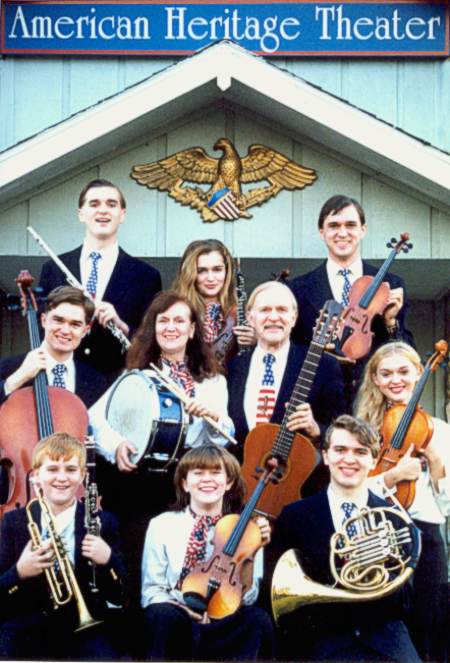
So we had ten people living in the motorhome and we moved all over because my father would make claims that he was a prophet and that he would become the president someday, and that he and our family had a special calling. He called it the mission to play classical music on street corners and pass out brochures trying to proselytize and convert people to the Mormon church. My ancestors helped to found the Mormon church, and my dad became so extreme, he was eventually excommunicated.
On the Fence About Faith
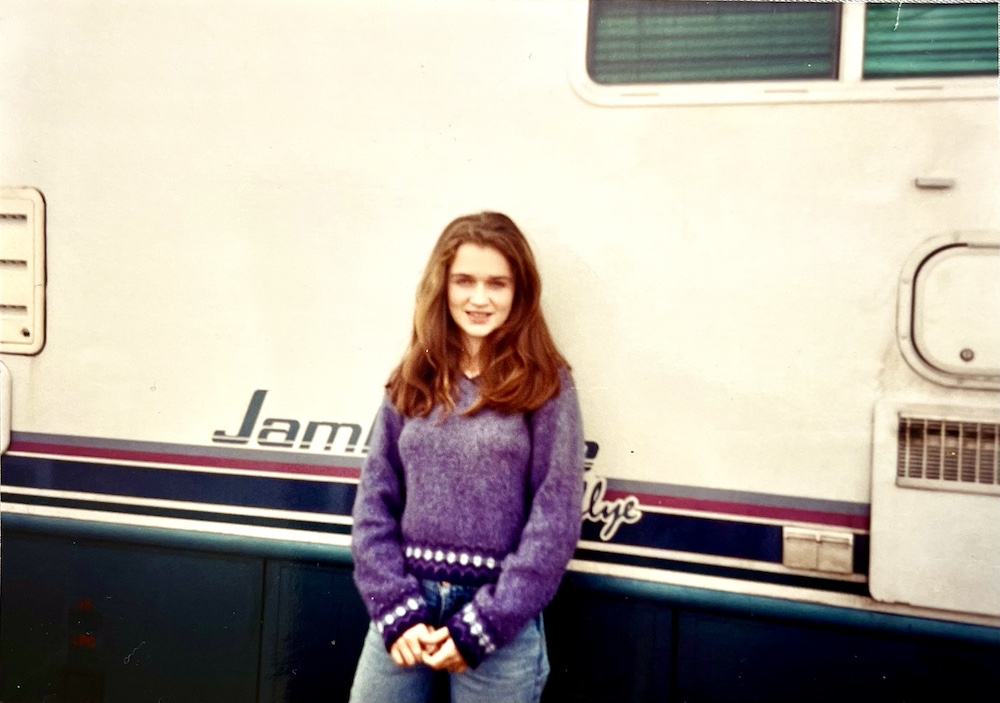
I describe agnosticism as [being] a cosmic shoulder shrugger, just saying, “I don’t know.” I never called myself an atheist to say, “I definitively know or reject or say there is no God.” But I also didn’t believe. I thought it was just as rigid to be an atheist as it was to be someone who said, “I know for certain there is a God.” I kind of took pride in what I thought was being humble about being a shoulder shrugger, but part of why I did not believe in God was because I just felt anger toward if there was a God, why would He put me in such a horribly abusive family that eventually led three of my siblings to attempt suicide? That I would think about suicide and have depression and PTSD and anxiety for many years? Why would God do that? And so either God doesn’t exist, and we’re just monkeys, it’s all chance—or He just walks away and He’s abandoned us, He doesn’t care. Or, He’s proactively evil. So in any scenario, I don’t want anything to do with this. So that’s where I existed for about twelve years. I was agnostic, and for me, I found lots of coping mechanisms to try to fill that void.
“I kind of took pride in what I thought was being humble about being a shoulder shrugger, but part of why I did not believe in God was because I just felt anger toward if there was a God, why would He put me in such a horribly abusive family that eventually led three of my siblings to attempt suicide? That I would think about suicide and have depression and PTSD and anxiety for many years? Why would God do that?” – Carrie Sheffield
Combining Head and Heart to Find True Faith
Moving around so much, it was very disruptive to my studies as a child. I went to schools in rural settings, urban settings, suburban settings, and home school. But the worst part about it was there was no learning going on. I remember being in middle school and seeing the curriculum that was what I’d seen in elementary school. You know, in sixth grade, it was things I’d maybe seen in like second or first grade. So it was just a place of hopelessness.

And so I think what helped me was my desire for a better life and my dream for something more beyond the pain and the trauma that I grew up with. And so I knew that education was something that could come from within myself in terms of cultivating my own mind. And so I really tried as hard as I could to educate myself and use that education as a platform in order to succeed in life.
My father basically said when I went away to college that I was disowned from the family. He said my blood had changed. I was no longer his daughter, and I was not allowed home. So I took that as fuel to motivate myself. And so getting that acceptance to Harvard, in some ways, it was unhealthy because it created this sense of false pride against my father. But I knew it was going to unlock a new life for me. And so I was very happy. I was very excited, but I still had a lot to learn in terms of forgiving my father and not letting the pride get to my head.
I got a master’s degree in public policy from the Harvard Kennedy School of Government, and that became my religion, politics. But the climate and the divisiveness, I realized, Wow, I need something bigger. So that’s how I started to come back to faith, and something that really helped me also in my faith was studying metaphysics.
A friend gave me a book that had been co-authored by a PhD physicist from MIT, it’s an incredible book with the title You Are The Universe. And it really looks at how much evidence there is for a divine Creator and how mathematically and statistically and probabilistically, it actually takes a lot more faith to believe in random chance than in some type of divine order. So it was the combination of the head and the heart that brought me to accepting and understanding there is a Creator of the universe, and then taking it a step further to say, “He might actually care about me.”
“Mathematically and statistically and probabilistically, it actually takes a lot more faith to believe in random chance than in some type of divine order.” – Carrie Sheffield
Quite often, people would quote to me from Jeremiah 29:11 where it says, “For I, the Lord, know the plans I have to prosper you, to give you hope and a future.” I hated that verse because I said, “What plans are you talking about? Because it seems like all that God gives me is curses.”
I think trusting that God can help us to do differently and to choose differently, and to know that He wants differently for us, that takes faith. God is not religion, and if you have church hurt, that’s not from God. But I would encourage you to go back and find a church where you will be able to be rooted and flourish. I know in my life that’s been transformative for me.
“I think trusting that God can help us to do differently and to choose differently, and to know that He wants differently for us, that takes faith.” – Carrie Sheffield
Reshaping the Mind Through Prayer
There’s a great neurologist and a psychiatrist, his name is Curt Thompson, and he talks about how the brain can be moldable. It’s not rigid, like cement. And the way that we think and the patterns of our neural pathways—when you walk on a pathway, it’s got grass, but if you walk on it enough, it can become worn down in its dirt. That’s because the pathway there has been created. Well, that’s what happens when you’re stuck in mire. You’ve created a pathway in your brain of negativity and toxic self-sabotage, anger, revenge, whatever toxic belief you have, you’ve created that pathway.
Well, through the power of God, through the power of forgiveness, the power of gratitude, through all of the fruits of the spirit: love, joy, peace, patience, kindness, forbearance, goodness, gentleness, self-control—the more we practice those fruits of the spirit, the more we can transform our brain and create new pathways.
So I believe prayer is a potent weapon in the fight against self-sabotage. So for me, one of the very first things I do in the morning is I pray a prayer of protection. And I think people coming out of trauma and abuse or feeling depression—for me, it’s been transformative.
I love Jesus Calling’s ministry and work. A friend got me a copy shortly after I was baptized, and it’s a beautiful reflection of a God who loves you instead of looking at abusive religion. And so I like to say that the idea that we blame God for the religious abuse of humans, that’s like blaming a terrible concert. If you hear a really bad rendition of let’s say Beethoven’s Fifth Symphony, you don’t blame Beethoven, you blame the musicians. And so that’s how I feel with God and religion, that my aim is to point people to this loving Creator who can heal them.
Jesus Listens, January 9th:
Mighty God,
You are also the One who makes my pathway safe—protecting me not only from dangers but from worry and excessive planning. Instead of gazing into the unknown future, I want to be mindful of You as I journey through this day. I’ll endeavor to stay in close communication with You, relying on Your guiding Presence to keep me on course. Though You are always beside me, You also go before me—clearing away obstacles on the path up ahead. I trust that You’re making the conditions on my pathway the very best for accomplishing Your ways in my life.
In Your strong Name, Jesus,
Amen
Narrator: To learn more about Carrie Sheffield, check out her new book, Motorhome Prophecies, wherever you buy books.
If you’d like to hear more stories about how faith can help us find healing for our scars, check out our interview with Jana Monroe.
Next week: Emily P. Freeman

Next time on the Jesus Calling Podcast, we’ll hear from spiritual director, podcaster, and author Emily P. Freeman, who shares how God can help guide us through difficult life transitions, and help us decide when it’s time to stay or time to go.
Emily P. Freeman: God is fully love and fully attentive, and God will not let us miss our own future. Which means that as I make my decisions, I’m not making them in a room by myself. That as I stand in thresholds, God’s Spirit is with me and around me and loving me and here with me.
